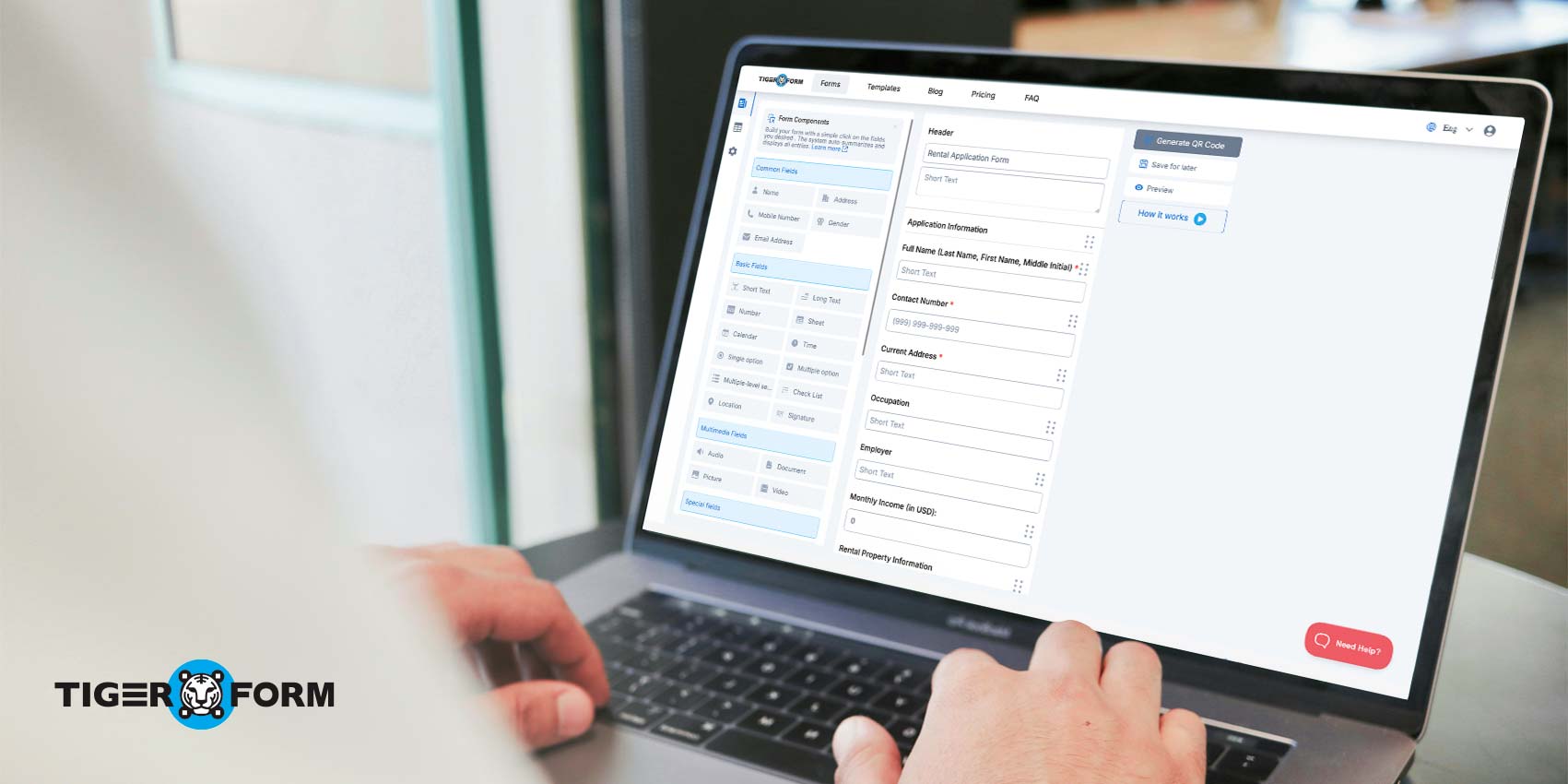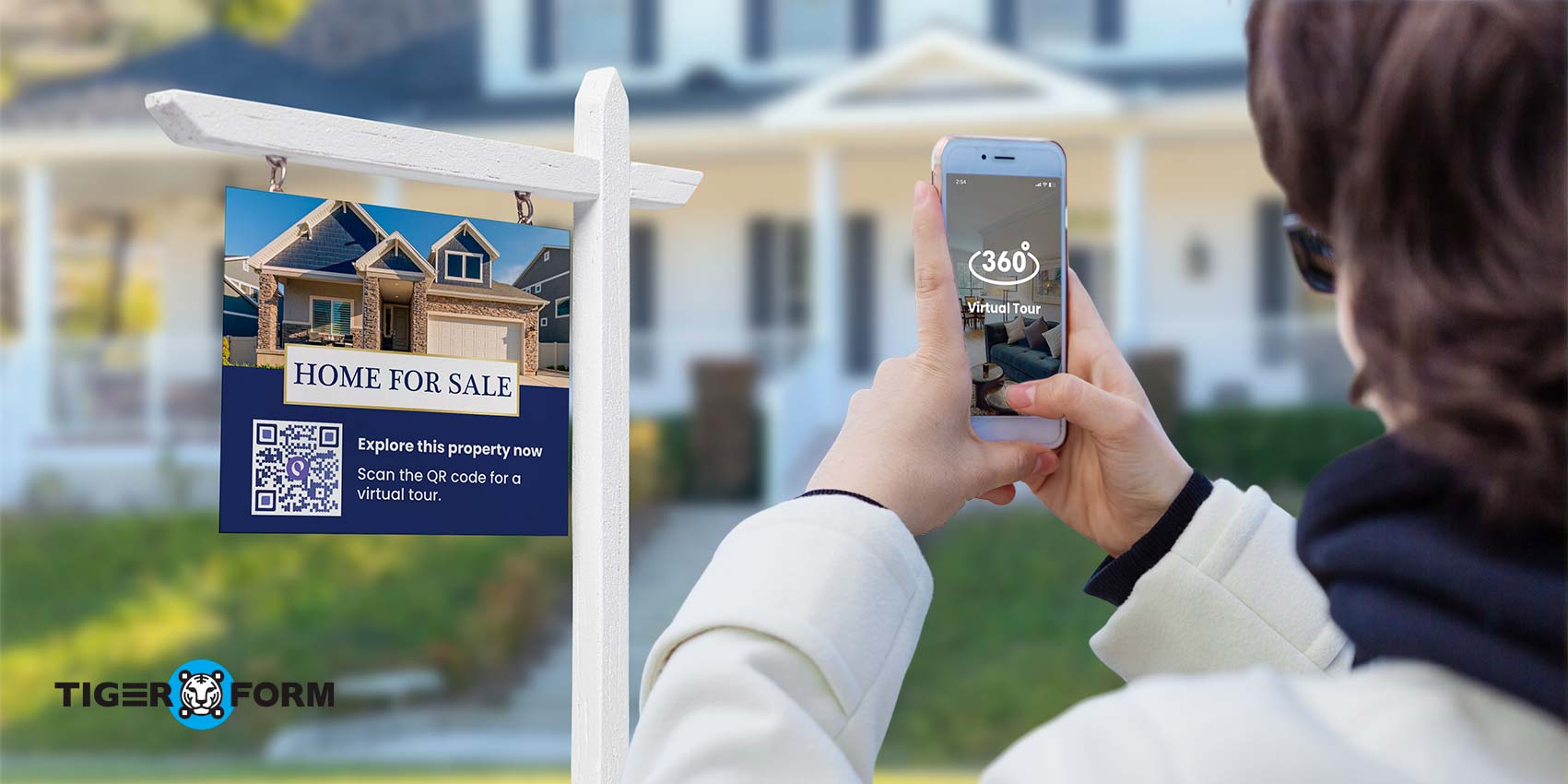
Credible and quality property listings can draw in many buyers. A property listing is an ad for a real estate property on the market. It gives buyers key details about the property, including its price, location, description, and photos. Searching for a dream home can be thrilling for buyers but also overwhelming due to the many options.
An online property listing for real estate gives more access to homes and investment properties than ever. Using the right tools and strategies, buyers can simplify their search and find exactly what they want.
Let’s explore how tools like QR codes, form builders, and detailed listings can boost real estate businesses. These innovations improve customer interactions, engagement, and lead conversion.
What is property listing for real estate?
Property listing for real estate refers to databases or platforms where available properties for sale or rent are listed. These listings usually contain detailed information such as:
- Price of the property
- Number of bedrooms and bathrooms
- Square footage
- Location (with maps or descriptions)
- Photos of the property
- Contact information for the listing agent
These data are essential when searching for real estate, as they provide all the necessary details to make informed decisions. Whether buying a home or looking for an investment property, understanding how to navigate these listings is key.
The importance of property listing for real estate businesses
Property listing for real estate serves as the foundation for attracting potential clients. These listings provide key details like prices, locations, and features. With the use of a QR code form for property listings, more accessible, allowing buyers to easily show interest.
A well-maintained, up-to-date property listing system is vital for any industry business. Buyers can view detailed real estate listings online. This reduces the need for initial inquiries. This saves time and helps agents concentrate on genuinely interested clients.
For real estate businesses, it’s not just about posting a listing. It’s about providing a detailed real estate overview that builds trust and convinces buyers to act.
Why do detailed real estate listings drive more engagement?
Property businesses must focus on creating detailed real estate listings to meet the growing demands of informed buyers. Modern buyers expect transparency and extensive information before they consider a property.
Here are the benefits of detailed listings for real estate businesses:
- Faster Conversions: Buyers will decide faster if they have all the necessary information. This will shorten the sales cycle.
- More Qualified Leads: Detailed listings filter out unserious buyers and exclude those with different needs, allowing agents to focus on high-potential leads.
- Enhanced Trust: High-quality photos, thorough descriptions, and accurate details make your business appear more professional and trustworthy.
These detailed real estate listings improve user experience and help businesses close deals more successfully.
How to create a property listing for real estate?
Creating a listing is key for agents to sell properties. Incorporating online appointments for real estate property listings can streamline the process by allowing potential buyers to schedule viewings effortlessly. Here are some steps to create a listing for a property:
Step 1
Build a relationship: First, form a relationship with the seller. This usually involves a listing agreement. It details your duties.
Step 2
Collect property info: Next, visit the property to gather details. Note its size, rooms, features, and any upgrades.
Step 3
Set the price: Then, compare similar properties and consider market trends.
Step 4
Create the listing: Now, prepare the listing. Include all details and highlight key features. Add photos and videos.
Step 5
Publish the listing: Finally, post the listing. Use your website, association sites, and other platforms.
Utilizing Real Estate QR Codes to improve engagement
Real estate QR codes boost engagement with property listings. They offer quick access to information, making buying easier. Agents can place these codes on brochures, signs, or ads, allowing buyers to see property details instantly.
QR forms save time for real estate firms and reduce paper use. They also make tracking buyer interest easier. When a buyer scans a code, they reach the property’s page. There, they find all the details, images, and videos. This instant access keeps buyers interested and helps turn them into clients.
Real estate QR codes help your business by:
- Improved Client Experience: Buyers can scan a QR code to access the listing, reducing wait times and eliminating the need to visit the office or website manually.
- Data Analytics: QR codes provide insight into client behavior. You can track how often a code has been scanned and measure interest in specific properties.
- Seamless Communication: QR codes can link directly to a digital form or contact page, making it easier for buyers to contact your agents.
Streamlining communication with digital forms for real estate

Real estate professionals handle much information, including property details and client inquiries. Using a property listing digital form is a beneficial way to streamline data collection and interaction. Real estate businesses can use these tools to gather specific information from potential buyers, schedule property viewings, or even collect property offers.
Digital form makers let real estate agents quickly design custom forms tailored to each listing, making client interactions more organized. These forms can be easily integrated with your website and CRM.
Benefits of using a digital form for real estate
A digital form creator allows real estate businesses to create custom forms that enhance the functionality of property listings. You can create forms for property viewings, offers, or buyer preferences. Easily integrate these forms into your list. This simplifies buyer interactions with your business.
A Google Form QR code or similar QR-based system can direct clients to these forms quickly. Clients can scan the code to fill out forms in seconds. This will streamline their interaction with your business and boost sales. Here are some of its benefits:
- Custom data collection: It enables you to create forms that capture the information you need from prospective buyers, ensuring that no detail is overlooked.
- Faster follow-up: With client data collected smoothly, agents can respond quickly and provide personalized service, improving client satisfaction.
- Automation: Automation links forms to email workflows, enabling automatic responses or follow-ups and freeing agents to focus on high-value tasks.
- Cost-effective: A free-form online builder allows you to create professional forms without additional costs, making it an excellent tool for small or independent real estate businesses.
- Quick setup: Ready-to-use templates allow you to set up property-specific forms in minutes, reducing the need for manual data collection.
- Improved client interaction: Using online forms, clients can instantly express interest in a property, book viewings, or leave feedback.
Why do Realtors need a QR code generator?
A QR code generator creates custom QR codes that link to forms, making it easy for clients to engage with your business. These QR codes can be attached to property listings or brochures, or be shared on social media or via email.
QR codes can link to forms. They let buyers quickly submit their details, making communication more productive and reducing response times. A digital property listing for real estate is more than a marketing tool. It is key to building customer relationships and closing deals.
Real estate businesses can boost productivity and profits by combining detailed listings with modern tools that engage clients.
The Future of QR Codes in Real Estate Listing
QR codes in real estate listings are growing and showing great potential. Yet, they face trends and challenges.
Augmented Reality (AR)

Augmented Reality (AR) could change how we use QR codes. For example, scanning a QR code at an open house could launch a 3D tour. This tour would include virtual walkthroughs and detailed floor plans. Buyers could explore homes from their own spaces, saving time for everyone.
Moreover, AR QR codes could show real-time details about a property. This includes information on energy-efficient appliances or smart home devices. Such features would give buyers a better understanding of the property.
Blockchain
Blockchain technology can improve the security of QR code transactions. Its decentralized and encrypted nature makes QR code transactions more trustworthy and fraud-resistant.
For instance, blockchain-enabled QR codes create a permanent public record in property deals. This ensures all parties have a clear, unaltered account of the transaction. Consequently, increased transparency promotes trust among buyers, sellers, and agents, making the process more secure.
Sustainability
QR codes boost sustainability by cutting down on paper use. This means fewer brochures, flyers, and other paper ads in real estate. For example, agents can share QR codes at open houses. These codes link to digital info, saving paper and reducing waste.
As we move toward a greener, more digital world, adopting QR codes helps lower our environmental impact and supports green goals.

Create a property listing for real estate with a QR form generator to boost sales
Using QR-coded forms can significantly enhance a real estate business and boost client interaction.
Buyers can easily access property details and contact agents, and simplify data collection and client communication. This allows agents to respond quickly, improve customer experience, and increase sales, ensuring success in a competitive market.
Discover the future of real estate with TIGER FORM. Say goodbye to uncertainty. Welcome, accurate property assessments. Are you ready to make confident decisions? Start creating a property listing for real estate with a QR code now, and sell smarter!
